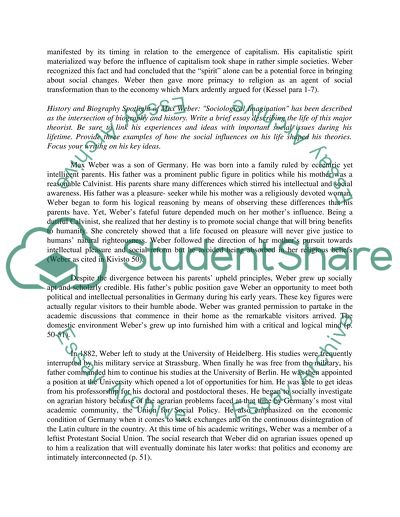Cite this document
(The Protestant Ethic and the Spirit of Capitalism by Max Weber Essay, n.d.)
The Protestant Ethic and the Spirit of Capitalism by Max Weber Essay. Retrieved from https://studentshare.org/history/1546920-what-did-weber-mean-by-the-spirit-of-capitalismwriter-16679
The Protestant Ethic and the Spirit of Capitalism by Max Weber Essay. Retrieved from https://studentshare.org/history/1546920-what-did-weber-mean-by-the-spirit-of-capitalismwriter-16679
(The Protestant Ethic and the Spirit of Capitalism by Max Weber Essay)
The Protestant Ethic and the Spirit of Capitalism by Max Weber Essay. https://studentshare.org/history/1546920-what-did-weber-mean-by-the-spirit-of-capitalismwriter-16679.
The Protestant Ethic and the Spirit of Capitalism by Max Weber Essay. https://studentshare.org/history/1546920-what-did-weber-mean-by-the-spirit-of-capitalismwriter-16679.
“The Protestant Ethic and the Spirit of Capitalism by Max Weber Essay”, n.d. https://studentshare.org/history/1546920-what-did-weber-mean-by-the-spirit-of-capitalismwriter-16679.


